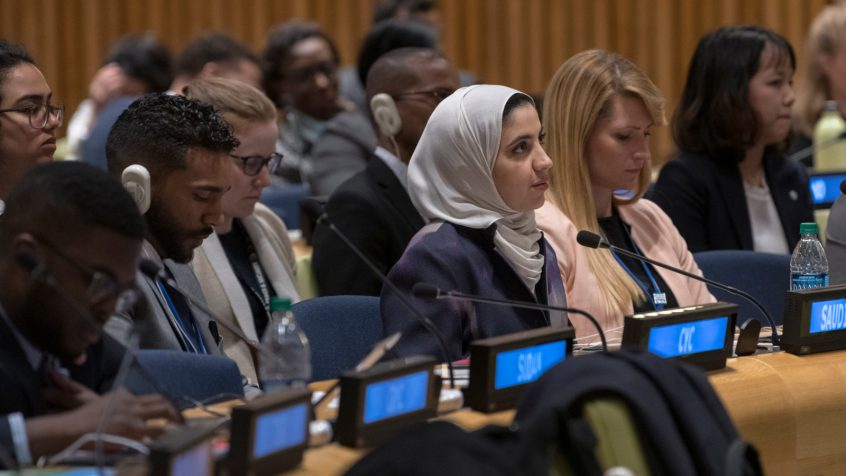
The Delegation of the European Union to the United Nations, the Permanent Mission of Portugal and UN-DESA hosted an event in the margins of the Commission for Social Development, on February 5, entitled The Importance of Youth Delegates inclusion around the theme “Socially just transition towards sustainable development: the role of digital technologies on social development and well-being of all”, bringing together officials, EU and Portuguese representatives, and youth delegates from all over the world.
The event had a great success of attendees, with an opening statement by the Permanent Representative of Portugal, Ambassador Francisco Duarte Lopes, a closing statement by the Head of Delegation of the European Union, Ambassador Olof Skoog, and a remarkable panel featuring the Permanent Representative of Argentina, Ambassador Maríadel Carmen Squeff, serving as the Chair of CSocD; the Assistant Secretary General for Policy Coordination and Inter-Agency Affairs at UN-DESA, Ms. Maria-FrancescaSpatolisano; the Permanent Representative of Pakistan, Ambassador Munir Akram, in his capacity as the President of ECOSOC; as well as Mr. Jordi Curell, Director for Labour Mobility in the European Commission Directorate-General for Employment, Social Affairs, and Inclusion. The speakers discussed the digital divide, especially in the context of Covid-19 and the increasing use of telework and eLearning, as well as the necessity to get input from youth and involve them directly in the decision-making process.
Several youth delegates took the floor after the panel discussion and gave statements in their national capacities as well as emissaries of youth globally. With 22 interventions in all, from Slovenia, Finland, Peru, Hungary, Luxembourg, Bulgaria, Mexico, Georgia, Slovakia, Ukraine, Czech Republic, Portugal, Romania, Germany, Serbia, Belgium, Ireland, Switzerland, Guyana, Palestine, Kenya, and Albania, the youth voice was heard loud and clear. They welcomed these avenues for cooperation in the CSocD session, but made an urgent call for including youth more meaningfully by inviting them to the resolution negotiations, letting them make statements in the general debate, and most importantly letting them be their own best advocates, as opposed to just inviting them to the sidelines.
They drew attention to the work youth have done throughout the pandemic, from combatting climate change to advocating for racial justice, even in the face of difficulties around social isolation and the lack of educational and professional opportunities as a result of Covid-19, making the point that they have the willpower and narrative, and would just like the platform to meaningfully share their positions to enact real change.
Watch full video for the event
 Welcome to the United Nations
Welcome to the United Nations